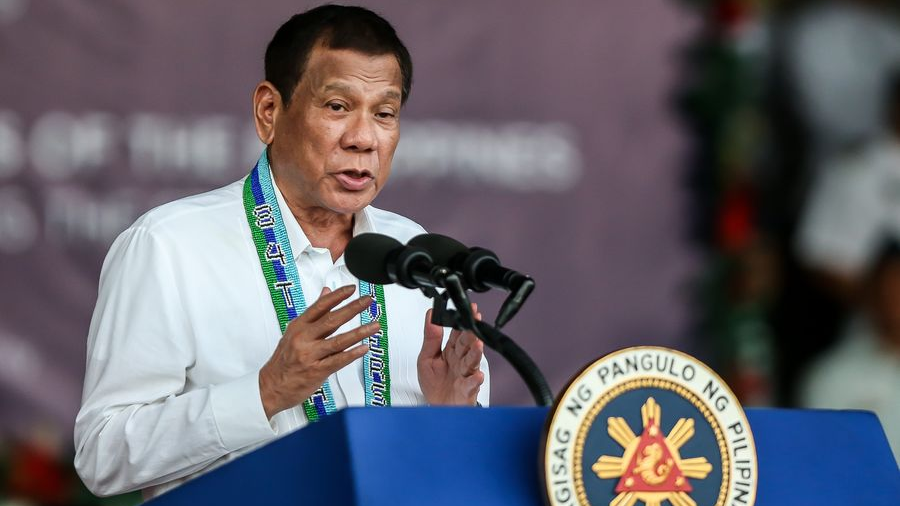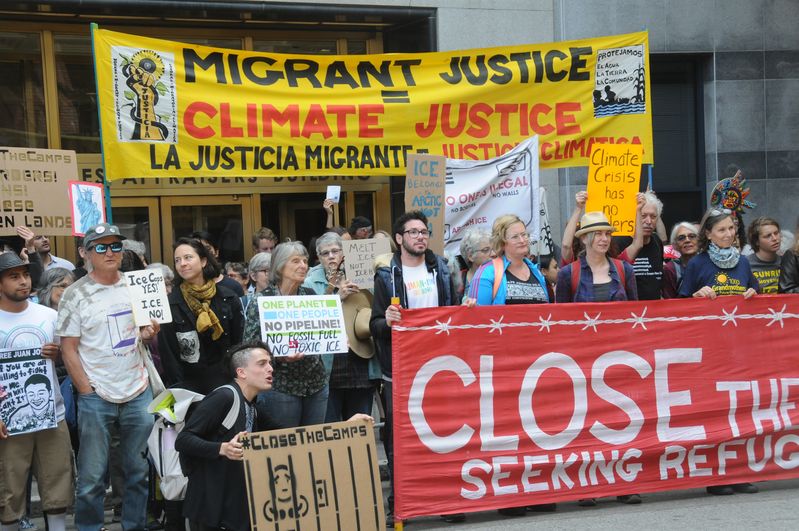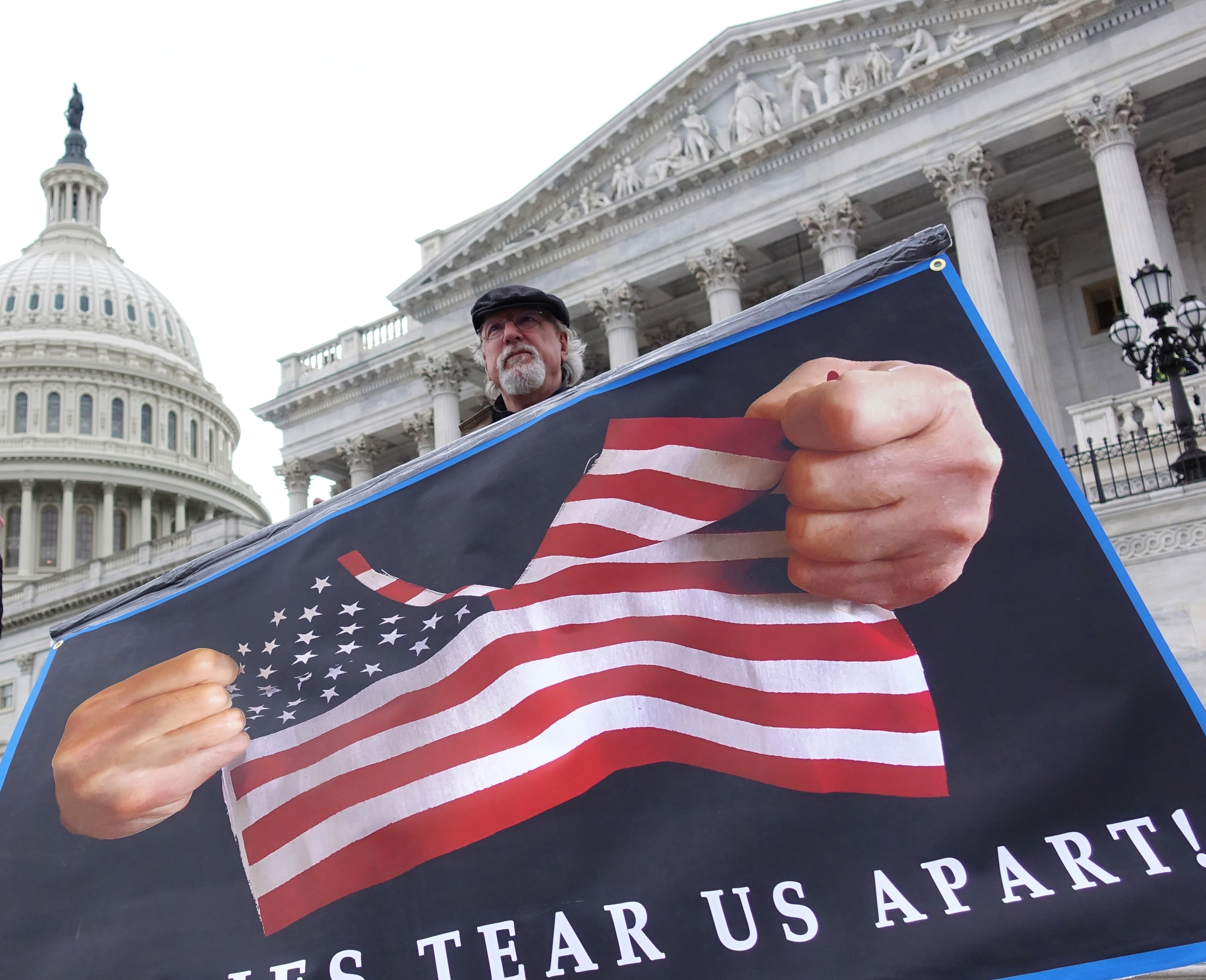
Philippine President Rodrigo Duterte speaks during the celebration of the 84th anniversary of the Armed Forces of the Philippines (AFP) inside Camp Aguinaldo in Quezon City, the Philippines, December 17, 2019. /Xinhua
Philippine President Rodrigo Duterte speaks during the celebration of the 84th anniversary of the Armed Forces of the Philippines (AFP) inside Camp Aguinaldo in Quezon City, the Philippines, December 17, 2019. /Xinhua
Editor's note: Hamzah Rifaat Hussain is a former visiting fellow at the Stimson Center in Washington and currently serves as an assistant researcher at the Islamabad Policy Research Institute (IPRI) in Pakistan. The article reflects the author's opinions and not necessarily the views of CGTN.
On Friday, Philippine President Rodrigo Duterte approved a tough and comprehensive anti-terrorism bill that grants the country's security forces special powers to indict and prosecute militants within its territory.
The law specifically mentions the targeting of terrorists and has resulted in a wide outcry in Western circles, human rights lobbies and the legal fraternity within the country over what is considered as sanctioning the violation of privacy, suppression of dissent voices and targeting of opposition figures.
The institutions championing the cause of human rights, however, fail to acknowledge that the Philippines, like many states across the globe, faces significant challenges to its state sovereignty in the form of insurgencies, terrorist groups and militants vying for influence and employing violence as an operational technique to fulfill their political objectives
Sovereign states in the international system are at liberty to employ tactics, legislate and pass bills which are deemed fit for securing their national security, promoting socioeconomic welfare and protecting territorial integrity.
In 2017, President Duterte instigated a massive crackdown against drug abusers to curb the pernicious socioeconomic effects of the drug economy on the country, resulting in a massive outcry from organizations such as Amnesty International.
Back then, journalists, activists and even members of the Philippines clergy called for the President's indictment prior to the end of his tenure scheduled for 2022.
The signing of the anti-terror legislation is another example of how, once again, Western organizations are decrying moves based on assertions that the government is sanctioning bills to muzzle opposition figures and promote democratic backsliding. Such narratives negate certain nuances which are not accommodated.

A demonstration in front of the headquarters of the U.S. Immigration and Customs Enforcement (ICE) in downtown San Francisco, California, U.S., August 5, 2019. /Xinhua
A demonstration in front of the headquarters of the U.S. Immigration and Customs Enforcement (ICE) in downtown San Francisco, California, U.S., August 5, 2019. /Xinhua
First, this bill was fast-tracked into the houses of the congress after extensive consultations and accommodating the reservations of different stakeholders.
Second, it establishes an "anti-terrorism council," allowing the president to designate groups and individuals as terrorists. The government's narrative that this bill solely focuses on dealing with terrorism with the establishment of the anti-terrorism council has been completely ignored by some human rights activists, international organizations and the United States.
Such denial becomes instantly controversial given that the Philippines faces an existential threat from the Islamic State in Mindanao region and the Moro Islamic Liberation Front (MILF), which seek to establish an Islamic caliphate as well as secure autonomy for the Muslim population.
The ISIL has conducted attacks against the Philippines' law enforcement agencies, civilians and armed forces, and this law provides unbridled powers in prosecuting terrorists, which is a global practice.
Furthermore, if the bill is examined closely, it is based upon similar legislation that other countries who are dealing with domestic terrorism and extremism have applied.
The practice of money laundering, piracy, drug trafficking and Islamic terrorism are other global issues afflicting the Philippines, yet this law has been erroneously linked with the practice of targeting political opponents and dismantling dissenting voices.
Even on subjects such as muzzling the media, most Western assessments on Duterte's government fail to acknowledge that outlets within the Philippines are facing corruption charges with the prime example of the news website Rappler being involved in tax evasion and its award winning chief Maria Ressa being convicted of libelous offences.
There has been scant appreciation of the Philippine governments anti-corruption drive amid the human rights mantra.
These factors hint at how legislation from sovereign states aimed at tackling threats to domestic security are met with subjective interpretations which negate on ground realities.
Prime examples include the recent castigation in the press on the Hong Kong national security law and subjective interpretations of Saudi Arabia's legal system from institutional lobbies championing the cause of human rights.

A protester stands in front of the Capitol in Washington, D.C., U.S., February 3, 2020. /Xinhua
A protester stands in front of the Capitol in Washington, D.C., U.S., February 3, 2020. /Xinhua
Human rights is undoubtedly a global issue that requires multilateral deliberation and discussion. However, the negation of the domestic realities and strategic compulsions of sovereign states, such as the Philippines, hint at the controversies surrounding Western assessments of human rights.
Such assessments also become untenable when states, such as the United States, adopt similar legislation domestically and infringe upon the human rights of their citizens.
The Patriot Act of 2001 under the George Bush administration and the executive order targeting immigrants entering the United States under the Donald Trump administration are examples of human rights violations both at the domestic and international level.
Similarly, the absence of criticism directed at Western allies, such as India, on acts such as the Prevention of Terrorism Act (POTA) of 2002, which was in response to the 2001 parliament attack hint at duplicity and ulterior motives in criticizing states such as the Philippines.
India's case was also similar to the Philippines, where special powers were granted to law enforcement agencies under POTA, yet reports had emerged regarding the targeting of minority groups at its inception. India though, has not suffered from the slew of global criticism currently engulfing the Philippines.
Across the world, states have and are passing legislation to prevent domestic insurgencies, terrorist activities, threats to public order and corruption from surfacing.
Politicizing a sensitive issue such as human rights by negating on the ground realities results in the souring of relations between the country being targeted and states championing the cause.
It also promotes the notion that beneath the veneer of championing human rights is gross interference and threats to state sovereignty. Only through dialogue and understanding can subjective assessments be avoided and fact based narratives promoted.
(If you want to contribute and have specific expertise, please contact us at opinions@cgtn.com)